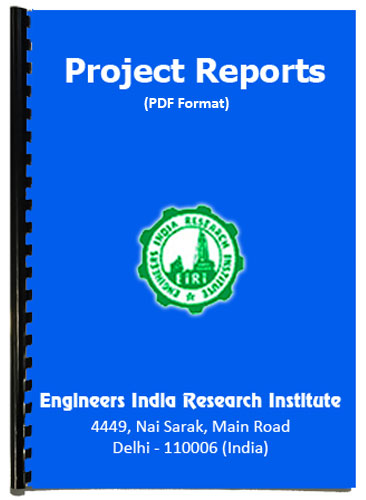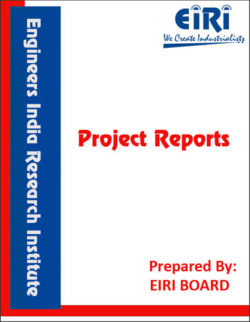Description
INTRODUCTION
LITHIUM IRON PHOSPHATE (LIFEPO4)
LITHIUM ION CATHODE CHEMISTRY COMPARISON (USED WITH CARBON ANODES)
ADVANTAGES:
CONSTRUCTION OF LITHIUM FERRO PHOSPHATE BATTERY
CHARGING AND DISCHARGING PHENOMINA IN LI ION BATTERY
SAFETY FACTOR IN LITHIUM ION PHOSPHATE BATTERIES
CHARACTERSTICS OF LIFEPO4 BATTERIES
DIFFERENT SHAPES OF LITHIUM FERRO PHOSPHATE CELLS
USES AND APPLICATION
B.I.S. SPECIFICATION
PROCESS FLOW CHART FOR BATTERY ASSEMBLING
ASSEMBLING PROCESS OF LITHIUM ION BATTERY
1. CELL SORTING:
2. MODULE ASSEMBLY:
3. PACK ASSEMBLY:
4. FINAL TESTING AND STORAGE:
EQUIPMENTS FOR AUTOMATIC ASSEMBLY
1. LINEAR WORKPIECE CARRIER TRANSFER SYSTEM
2. PRE-ASSEMBLY STATION
3. AUTOMATIC MODULE ASSEMBLY STATION
1. ASSEMBLY OF SECOND SIDE PLATE
2. AUTOMATIC LINE CHANGE
3. AUTOMATIC LASER WELDING STATION
MARKET POSITION
INDIA LITHIUM-ION BATTERY MARKET
DECREASING COST OF LITHIUM-ION BATTERIES – TO SUPPLEMENT THE DEMAND
RENEWABLE-BASED ENERGY STORAGE – OPPORTUNITY FOR GROWTH
ELECTRIC VEHICLES & LITHIUM ION BATTERY MARKET, INDIA, 2017
CHANGING LANDSCAPE OF THE ENERGY SECTOR, INDIA, 2017-2030
INDIA LITHIUM-ION BATTERIES MARKET TO GROW AT OVER 35% CAGR
INDIA LITHIUM-ION BATTERIES MARKET FORECAST AND OPPORTUNITIES,
KEY DEVELOPMENTS IN THE INDIA LITHIUM-ION BATTERY MARKET
INDIGENIZATION OF LITHIUM-ION BATTERY MANUFACTURING
A TECHNO-ECONOMIC FEASIBILITY ASSESSMENT
GLOBAL LIB PRODUCTION AND PRICE TREND
LIB DEMAND IN INDIA: PROJECTIONS FOR 2030
ECONOMICS OF LIB MANUFACTURING: 50 GWH PLANT
ANALYSIS & RECOMMENDATIONS
BATTERY MARKET POSITION
GLOBAL CONTEXT AND IMPACT
KEY CHALLENGES TO SCALING INDIA’S BATTERY INDUSTRY
A. LOW MINERAL RESERVES
B. EARLY-STAGE BATTERY MANUFACTURING INDUSTRY
C. LACK OF COORDINATION AMONG STAKEHOLDERS
D. HIGH PERCEIVED RISK
PLANT LAYOUT
PRINCIPLES OF PLANT LAYOUT
MAJOR PROVISIONS IN ROAD PLANNING FOR MULTIPURPOSE SERVICE IS:
PLANT LOCATION FACTORS
PRIMARY FACTORS
1. RAW-MATERIAL SUPPLY:
2. MARKETS:
3. POWER AND FUEL SUPPLY:
4. WATER SUPPLY:
5. CLIMATE:
6. TRANSPORTATION:
7. WASTE DISPOSAL:
8. LABOR:
9. REGULATORY LAWS:
10. TAXES:
11. SITE CHARACTERISTICS:
12. COMMUNITY FACTORS:
13. VULNERABILITY TO WARTIME ATTACK:
14. FLOOD AND FIRE CONTROL:
EXPLANATION OF TERMS USED IN THE PROJECT REPORT
1. DEPRECIATION:
2. FIXED ASSETS:
3. WORKING CAPITAL:
4. BREAK-EVEN POINT:
5. OTHER FIXED EXPENSES:
6. MARGIN MONEY:
7. TOTAL LOAD:
8. LAND AREA/MAN POWER RATIO:
PROJECT IMPLEMENTATION SCHEDULES
INTRODUCTION
PROJECT HANDLING
PROJECT SCHEDULING
PROJECT CONSTRUCTION SCHEDULE
TIME SCHEDULE
SUPPLIERS OF LIFEPO4 BATTERY PACK
SUPPLIERS OF RAW MATERIALS
SUPPLIERS OF LI ION FE PO4 CELL
CHINA SUPPLIERS FOR LIFEPO4 CELL
SUPPLIERS OF PLANT AND MACHINERY
SUPPLIERS OF ASSEMBLY LINE
SUPPLIERS OF ELECTRICAL PANEL
SUPPLIERS OF AIR POLLUTION CONTROL EQUIPMENTS
SUPPLIERS OF AIR CONDITIONING EQUIPMENTS
SUPPLIERS OF AIR COMPRESSORS
SUPPLIERS OF MATERIAL HANDLING EQUIPMENTS
SUPPLIERS OF FIRE FIGHTING EQUIPMENTS
SUPPLIERS OF SUBMERSIBLE WATER PUMP
ADDRESSES OF PLANT & MACHINERY SUPPLIERS FOR LITHUM BATTERY
APPENDIX – A:
01. PLANT ECONOMICS
02. LAND & BUILDING
03. PLANT AND MACHINERY
04. OTHER FIXED ASSESTS
05. FIXED CAPITAL
06. RAW MATERIAL
07. SALARY AND WAGES
08. UTILITIES AND OVERHEADS
09. TOTAL WORKING CAPITAL
10. TOTAL CAPITAL INVESTMENT
11. COST OF PRODUCTION
12. TURN OVER/ANNUM
13. BREAK EVEN POINT
14. RESOURCES FOR FINANCE
15. INSTALMENT PAYABLE IN 5 YEARS
16. DEPRECIATION CHART FOR 5 YEARS
17. PROFIT ANALYSIS FOR 5 YEARS
18. PROJECTED BALANCE SHEET FOR (5 YEARS)



